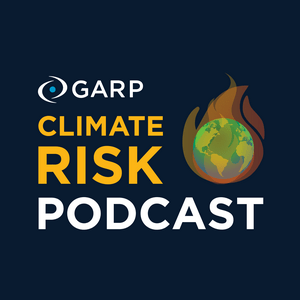Hear from Eva Zabey, CEO of Business for Nature, as we dive into the complex landscape of environmental diplomacy, and the role of business in halting and reversing biodiversity loss. We know that our economies depend on nature. But with biodiversity loss and climate change both putting pressure on ecosystems, businesses and financial institutions are facing increasing risks. In recognition of this, there is action on the policy front, and with global biodiversity agreements taking shape, the question isn’t whether firms should act – but how they can do so effectively. That’s why in this episode, we dive into the role of business and finance in halting and reversing biodiversity loss, along with some practical steps firms can take to integrate nature into their strategies. We discuss: The evolving policy landscape, including key takeaways from recent biodiversity COPs; The challenges financial firms face in measuring their impacts and dependencies on nature; and The tools and frameworks that can help firms take action. To find out more about the Sustainability and Climate Risk (SCR®) Certificate, follow this link: https://www.garp.org/scr For more information on climate risk, visit GARP’s Global Sustainability and Climate Risk Resource Center: https://www.garp.org/sustainability-climate If you have any questions, thoughts, or feedback regarding this podcast series, we would love to hear from you at:
[email protected] Links from today’s discussion: Business for Nature: https://www.businessfornature.org/ Nigel Topping on the GARP Climate Risk Podcast: https://www.garp.org/podcast/the-cop28-survival-guide-how-it-works-and-what-to-expect Global Biodiversity Framework: https://www.cbd.int/gbf Science Based Targets Network (SBTN): https://sciencebasedtargets.org/about-us/sbtn Nature Action 100: https://www.natureaction100.org/ Finance for Biodiversity Foundation: https://www.financeforbiodiversity.org/ Speaker’s Bio(s) Eva Zabey, CEO, Business for Nature Eva leads Business for Nature, a global coalition aiming to unify the business voice to call for action to reverse nature loss and restore the planet’s vital natural systems on which economies, wellbeing and prosperity depend. Previously, Eva led multiple projects at the World Business Council for Sustainable Development (WBCSD) for 15 years, including leading work on natural, social and human capital measurement, valuation for business decision-making towards integrated performance management, and reporting for investors. She led the development of the Natural Capital Protocol on behalf of the Natural Capital Coalition, as well as the establishment of the new Social and Human Capital Coalition. Eva holds a bachelor’s degree in Ecology from Imperial College London and a master’s degree in Environmental Management from the École Polytechnique Fédérale de Lausanne (EPFL). In 2012, she completed a University of London on-line course on Environmental Valuation Techniques and delivered a TEDx Talk on valuing nature in business.
